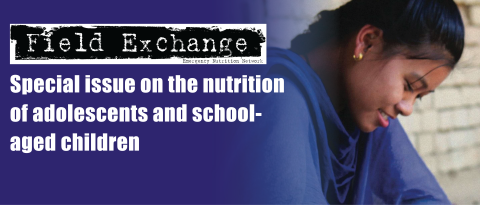Investing in the now and the future: Why governments should commit to adolescent health and nutrition
Report Summary 1
Save the Children UK and Scaling Up Nutrition (SUN) Youth Leaders recently released a brief making the case for prioritising adolescent health and nutrition and setting out recommendations for governments to implement a gender-transformative, adolescent-responsive approach to health and nutrition. The brief provides model commitments for advocates, governments and donors and calls for governments to increase their commitment to invest in gender- and adolescent-responsive, integrated health and nutrition services. This global brief was created in recognition of the multiple commitment-making moments in 2021 and beyond (including the Nutrition for Growth Year of Action, the Global Financing Facility Replenishment Event, the UN Food Systems and Lives in the Balance Summits, Family Planning 2030 and the Generation Equality Summit) and the opportunity these moments present to further adolescent health and nutrition. The brief also aims to equip national advocates and youth leaders with an interest in adolescent health and nutrition with a clear briefing explaining why this issue is important and what needs to be done.
Key content and recommendations
The brief provides a summary of the challenges that adolescents face in gaining access to health and nutrition services and maintaining their health, nutrition and economic wellbeing – these barriers include stigma and discrimination, dependence on support from others and adolescents falling between the services designed for children and those designed for adults. It highlights the increasing de-prioritisation and reduced investment in adolescent health and nutrition in this critical period when adolescents face increasing health risks and gender inequities further exacerbated by the COVID-19 pandemic. It uses programme evidence and experience from SUN Youth Leaders to demonstrate barriers and opportunities for adolescents in nutrition and health and provides an evidence-informed resource demonstrating the links between gender equity, girls’ empowerment and health and nutrition.
The brief calls for adolescent-responsive health and nutrition systems and gender-transformative approaches. An adolescent-responsive approach is a systems approach that integrates adolescent services into each building block of the health and nutrition system and adapts policies, procedures and programmes to respond to the unique and diverse needs and preferences of adolescents. Gender-transformative approaches attempt to promote gender equality by (i) fostering a critical examination of inequalities and gender roles, norms and dynamics, (2) recognising and strengthening positive norms that support equality and an enabling environment, (3) promoting the relative position of women, girls and marginalised groups and transforming the underlying social structures, policies and broadly held social norms that perpetuate and legitimise gender inequalities. The brief identifies the core components of adolescent-responsive and gender-transformative minimum services. These include (i) how systems can specifically support adolescents, (ii) specific measures to improve nutrition, including through community entry points, (iii) how information environments can promote stigma-free access to services and (iv) measures to address and transform gender inequalities in health and nutrition outcomes.
Finally, the brief sets out nine model commitments that governments can make to deliver on adolescents’ right to health and nutrition amongst others, emphasising the importance of a multi-sector, integrated approach that adopts adolescent responsive health management information systems, partners with adolescents and youth at all levels of policy and programming and allocates increased domestic resources to strengthen health and nutrition systems and to improve the quality of care for adolescents everywhere.
1 https://resourcecentre.savethechildren.net/library/investing-now-and-future


